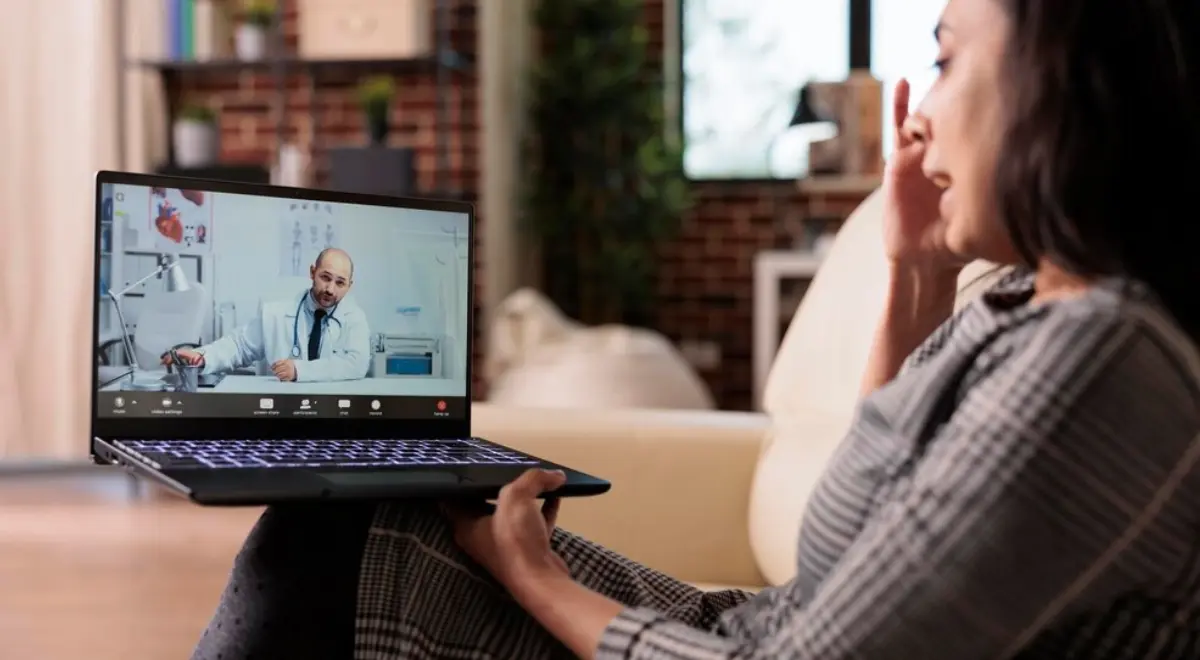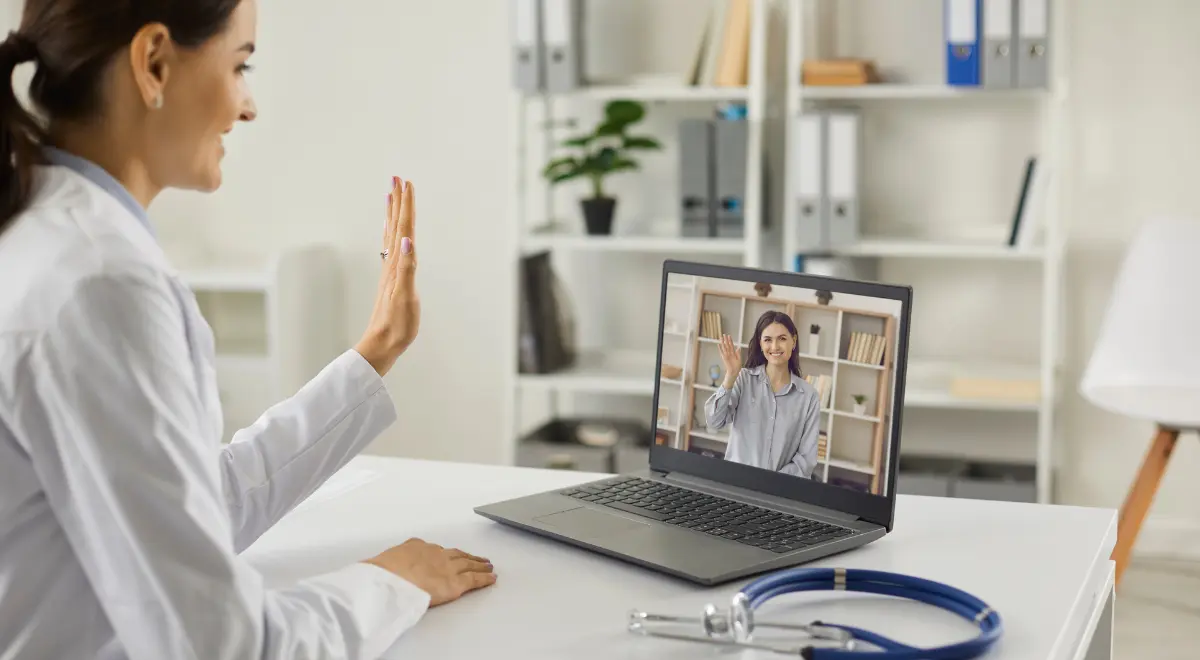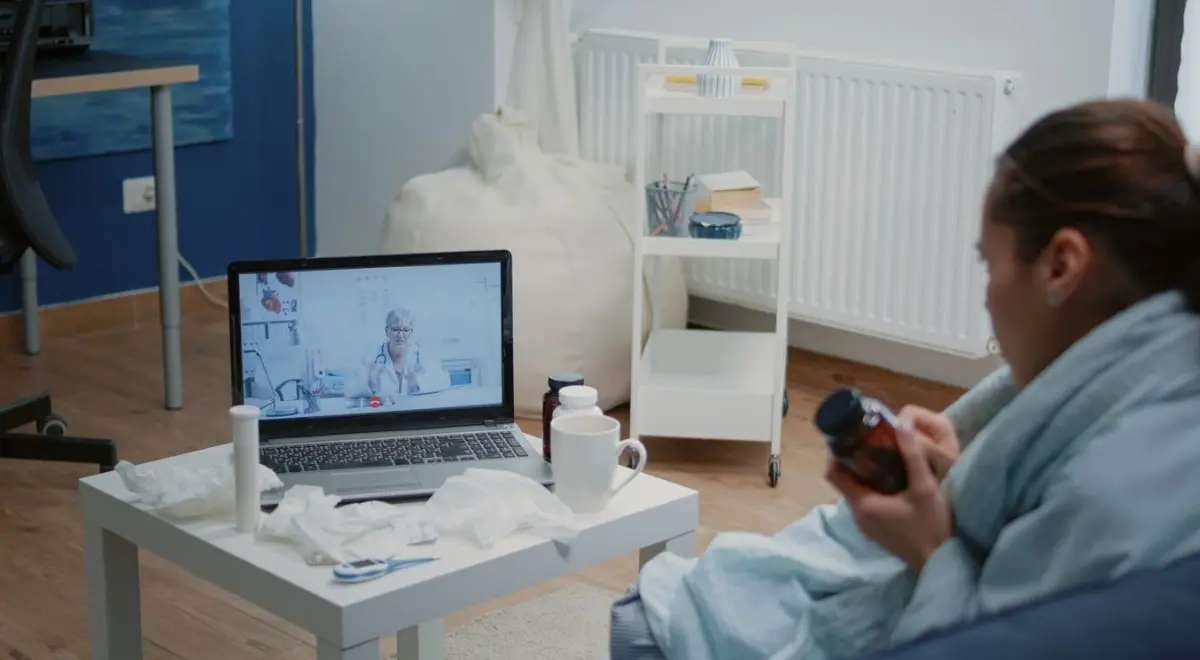Benefits of Remote Therapeutic Monitoring (RTM) for Physical Therapists

Remote Therapeutic Monitoring (RTM) is a technology-driven practice that has improved the communication between patients and physical therapists, going past geographical constraints and enabling healthcare professionals to extend their care and therapy services beyond the clinic walls.
Physical Therapists (PTs) can harness this patient monitoring and management system for data-driven insights, customized interventions, and therapy success.
Table of Contents
ToggleWhat is Remote Therapeutic Monitoring?
Remote Therapeutic Monitoring (RTM) enables healthcare professionals to remotely monitor and manage their patients’ progress and formulate treatment plans based on health data reporting. It involves collecting non-physiological data from patients via an FDA-approved Software-as-a-Medical-Device (SaMD).
As per the CMS Physician Fee Schedule (PFS) final rule, the non-physiological data includes “musculoskeletal system, respiratory system, therapy or medication adherence, and response.”
Patients can self-report data within the connected medical devices and software that is monitored and analyzed by the physical therapists to assess the patient’s pain levels, tolerance to therapy, and other relevant data impacting the treatment outcomes.
Physical therapists can track patients’ movements, exercises, and vital signs in real-time using RTM devices, including wearable sensors, smartphone applications, or digital health platforms. After assessing this data, physical therapists may provide individualized guidance; customize therapy programs, and execute exercises to improve recovery results.
How Does RTM Benefit Physical Therapists?
There are numerous reasons why RTM is beneficial for physical therapists and the most significant ones are listed below:
- Boosts Patient Outcomes
By improving engagement and adherence, RTM is greatly enhancing the patient outcomes for physical therapists. It does so by developing a method for following up on patients and reinforcing behavior modification and remote care plans. By applying the new RTM codes for 2024, physicians can track their patient’s musculoskeletal and respiratory status, along with assessing pain levels, sleep patterns, HEP adherence, physical exercise performance, and modifying treatment plans.
PTs can even figure out if the patients are following the treatment plan or need guidance, support, education, and/or encouragement to achieve their therapy goals.
- Collects More & Better Data
To ensure better patient outcomes, data collection plays a crucial role. Efficient data collection involves gathering, analyzing, and assessing patient records that most therapists and clinicians struggle with, which may be due to time constraints or a busy schedule.
RTM streamlines this data collection process, thereby allowing physical therapists to collect the right and quality data about their patients’ lifestyles and health-related activities. This data can aid PTs with better clinical decision-making, patient experience, outcomes, and medication adherence.
- Offers Additional Revenue Source
Billing the RTM codes can yield considerable returns to the physical therapists, who can bill an additional $160 per patient for the eligible CPT codes under certain situations. Along with this, therapists will be reimbursed for the work done previously before RTM was considered reimbursable.
- Reduces Barriers To Care
Almost 15% of the US population resides in remote areas with limited access to health care, thereby making routine doctor visits quite inaccessible and expensive. This accessibility challenge poses a significant risk to healthcare outcomes. RTM program aims at providing remote care and therapy to patients with geographical and transportation limitations.
Financial Benefits Of RTM for Physical Therapists
In addition to improving patient care and engagement, RTM delivers substantial financial benefits for physical therapists. Some of the most significant ones include:
- Increased Revenue Per Care Plan
Physical therapists can use RTM to bill additional codes, such as the initial setup price, monthly device fee, and monitoring time fees. Incorporating the new billing codes in physical therapy care may result in an average of $333* additional income per patient. (*the amount varies for different locations)
- Higher Patient Engagement Rate
RTM boosts the patient engagement rate by around 70-75% and improves a therapist’s bottom line with an annual profit of $140,000 approximately. This profit can be generated by providing patients with remote therapeutic monitoring services without increasing the in-clinic workload for a therapist.
- Improved Profit Margin
RTM can significantly boost the profit margin for PTs by up to 60% approximately by implementing an RTM program at their practice. This can greatly benefit private clinicians who generally have a lower profit margin or reimbursement rate.
Considerations For Implementing RTM At Your Therapy Practice
RTM is a beneficial approach to improving the quality and efficiency of care for patients receiving physical or rehabilitation therapy. Incorporating it into your practice requires an initial investment in technology and training. Though there’s a significant investment in the start, the margins are worthwhile the return on investment. Some aspects to consider when implementing an RTM include:
- Clearly define your goals and objectives
- Carefully select your patient base
- Provide adequate training to staff on RTM
- Develop a plan for analyzing RTM data
- Integrate RTM into existing workflows
- Implement policies to protect patient privacy
Get The Most Of Your RTM Reimbursements With HealthArc
HealthArc is a leading provider of digital health platforms, RPM systems, and Remote Therapeutic Monitoring software for physical therapists, clinicians, and qualified healthcare professionals. Our digital platforms assist PTs in ensuring efficient billing, reimbursement, and patient outcomes.
Book a demo today to find out how our RTM system works or feel free to talk to our team at +201 885 5571 to learn more about our healthcare dashboard.
Most recent blogs
Categories
- Advanced Primary Care Management
- Behavioral Health Integration
- Cellular Remote Patient Monitoring
- Chronic Care Management
- Chronic Care Management Billing
- Chronic Care Management CPT Codes
- Chronic Care Management Program
- Chronic Care Management Software
- Digital Health Platform
- Principal Care Management
- Principal Care Management CPT Codes
- Remote Care Programs
- Remote Monitoring Devices
- Remote Patient Care
- Remote Patient Monitoring
- Remote Patient Monitoring Billing
- Remote Patient Monitoring CPT Codes
- Remote Patient Monitoring Devices
- Remote Patient Software
- Remote Therapeutic Monitoring
- Remote Therapeutic Monitoring Billing
- Remote Therapeutic Monitoring CPT Codes
- Telemedicine & RPM
- Transitional Care Management
- Transitional Care Management Billing
- Transitional Care Management CPT Codes
Related Posts
- January 10, 2025 | Read Time: 4 mins
Remote Therapeutic Monitoring: A Must-Have for Providers
- July 23, 2024 | Read Time: 8 mins
HealthArc Vs. Prevounce: Which One To Choose?
- June 27, 2024 | Read Time: 4 mins






